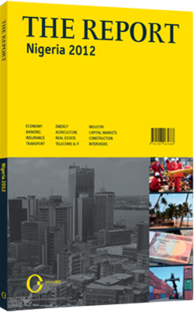Mutual benefits: The relationship with Ghana remains crucial, despite a recent dispute
As the two largest economies in West Africa, the relationship between Nigeria and Ghana is a crucial one for the region. Trade ties are particularly important, and Nigeria’s high levels of liquidity serve as an important source of capital for Ghana. However, a recent dispute between the two countries concerning the status of Nigerian traders in Ghana is a reminder of past bilateral tensions that have occasionally worsened political and economic relations, although the two countries have since moved to resolve the row and their governments have not heeded calls to sever ties.
REGIONAL BIG HITTERS: Nigeria and Ghana are the largest and second-largest economies in West Africa, respectively, and are also the two biggest oil producers in the region, although the difference in output between the two is immense. Nigeria was Ghana’s third-most-important trade partner in 2010, accounting for almost 10% of total Ghanaian foreign trade. Ghana, in turn, was Nigeria’s ninth-largest trade partner in that same year, accounting for some 1.3% of Nigerian trade ( including 1.9% of exports). Nigeria has also been a very important source of investment in Ghana. In recent years, for example, several Nigerian banks have set up shop in Ghana, as has the Nigerian telecommunications company Globacom.
PAST ISSUES: However, relations between the two former British colonies have not always been so rosy. In 1969-70, Ghana expelled large numbers of Nigerian residents. In 1981, at a time when Ghana was reliant on Nigeria for around 90% of its petrol requirements, Nigeria suspended oil exports to the country in response to the coup of that year, and then went on to expel around 1m Ghanaian residents in 1983 and a further 300,000 in 1985. These sporadic outbursts had largely died down, but concerns over competition among market traders – and more particularly, the loss of business among Ghanaian traders – has allowed them to flare up once again. The most recent argument centres on the government’s plans to enforce the 1994 Ghana Investment Promotion Centre Act, which mandates foreigners to employ a minimum of 10 Ghanaians and invest at least $300,000 in the capital of their business in order to act as traders in the country – a provision that has often been ignored.
IMPACT ON TRADERS: While the law affects all foreign traders, Nigerians are particularly heavily represented in commerce in the country; hundreds of thousands of Nigerians are thought to live in Ghana and many of them work as small-scale market traders. As a result, resident Nigerian traders see the crackdown on enforcement as targeting them in particular, particularly since complying with the act is often beyond the means of most traders.
In late June 2012 the government issued a warning that all legal requirements surrounding foreigners’ presence and business activities in the country would be strictly applied, and in early July the government moved to start enforcing the act, closing foreign-owned businesses in Accra’s famous Makola market and other trading centres.
Although anecdotal evidence indicates that Nigerian traders – along with Chinese traders – were affected, the overall impact on resident Nigerians has not been noticeable. However, the crackdown has led to a flaring of tensions between the two countries, with some Nigerian politicians reportedly calling on the government to sever diplomatic relations with Ghana in retaliation for plans to enforce the act.
KEEP THE CHANNELS OPEN: Few expect calls for the cutting of ties to be heeded, however – there is too much at stake and, in spite of the occasional disagreement between them, the two countries are as closely intertwined as can be. In early July 2012 the Nigerian government said bilateral relations between the two countries would not be jeopardised by the move, and later in the same month the two governments met to discuss the act’s requirements.
You have reached the limit of premium articles you can view for free.
Choose from the options below to purchase print or digital editions of our Reports. You can also purchase a website subscription giving you unlimited access to all of our Reports online for 12 months.
If you have already purchased this Report or have a website subscription, please login to continue.

